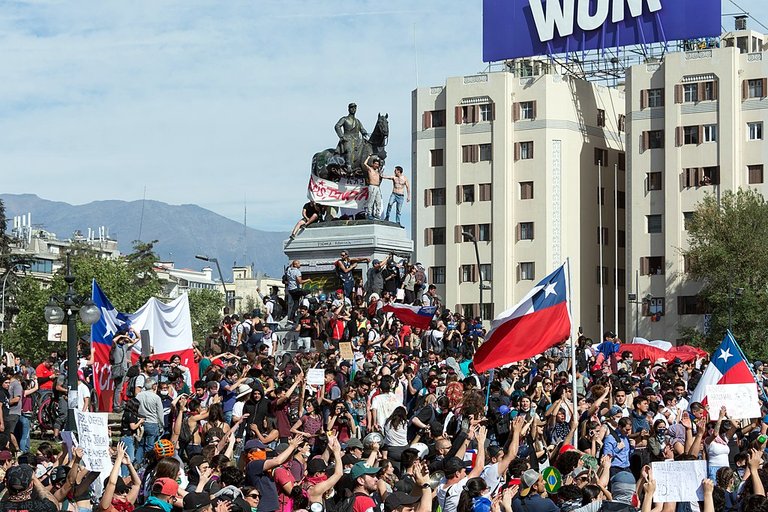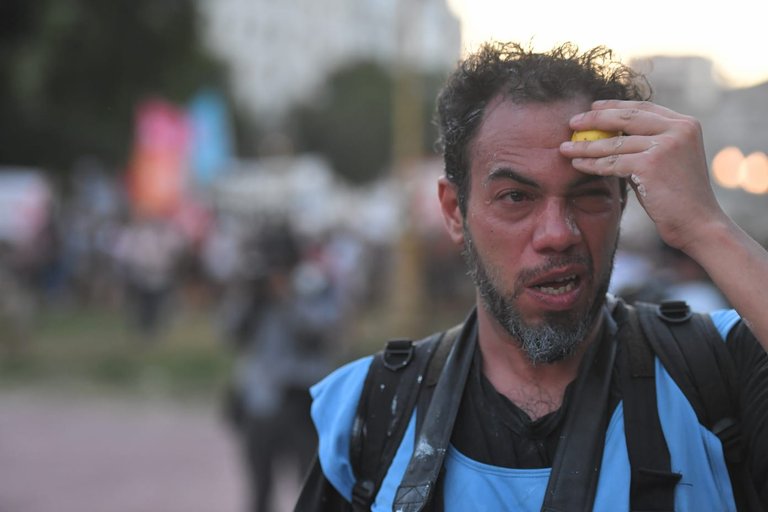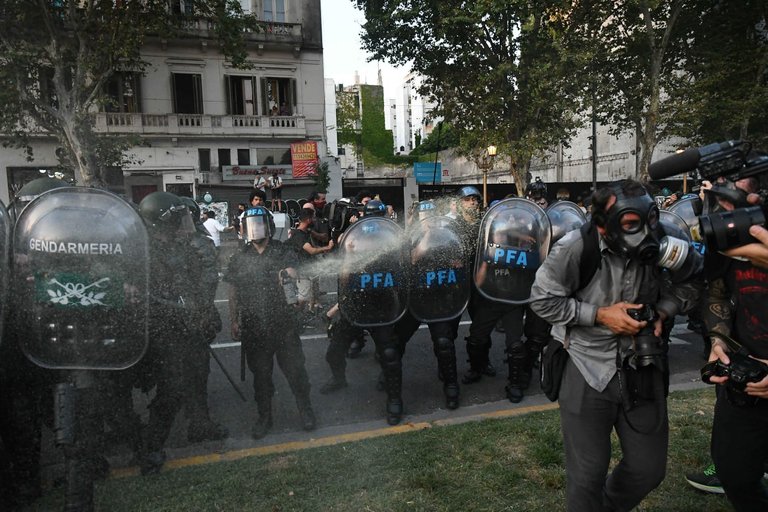The Latin American Report # 177

Former Chilean President Sebastián Piñera Dies
A tragic accident while piloting his helicopter—on his way back from a visit to a business friend—has taken Piñera's life on Tuesday. President Gabriel Boric has decreed a three-day national mourning period. The only major businessman openly opposed to dictator Augusto Pinochet, and a central figure in the country's politics in the last 15 years, he had to manage natural and social catastrophes, such as the consequences of a devastating tsunami in February 2010 or the resounding protests against the education model or the cost of life in general. According to Forbes, he was the owner of a fortune of close to 3 billion dollars, and I think he never could saw beyond his privilege in this sense, anchored in a perspective where—for example—in order to get an education you have to invest. I remember when young Chilean student leaders visited our university, demanding for them the same opportunity that we have here in Cuba to pursue higher education for free.
Free not in the sense that the service has no cost, but in the sense that its direct beneficiary—whoever is interested in studying—does not pay in any part of the process. My parents never gave a peso for a tuition fee on my behalf, or for a book, not even for the food that I ate, bad or good, in all the educational institutions I went through. Sometimes people want to distort this fact by alluding that there is public education everywhere, but this does not guarantee that it is free for the beneficiary. What young people like the current president Gabriel Boric were betting on was the latter and not something in between, but then-president Piñera was not permeable to that demand—much more achievable for sure in Chile than in poor and battered Cuba—, going so far as to say that education was "a consumer good". That vision, which included other critical fronts such as health, understood that "nothing is free in this life", which is true, but discriminates based on capital.
 Source
SourceWithin the political spectrum, his narrative and policies tended to place him as a center-right politician. He integrated the so-called Lima Group, which was formed to discuss the continuity in power of Nicolás Maduro in Venezuela. He supported the establishment of an ill-fated parallel government there in 2019. "The dictator's days are numbered and they are not many, because there are many factors that play in that direction", he said about four years ago. "Immense sadness for the death of my dear friend Sebastián Piñera, (who) committed like no one else to Chile and the values of freedom and democracy in Latin America", reacted the former Argentine president Mauricio Macri. This is what the also former head of the Pink House Cristina Fernández said: "As everyone knows, we did not have the same ideas, but we were always united by a relationship of great respect: he was a right-wing man but deeply democratic". The funeral will take place in the Hall of Honor of the Congress of Chile.
He is singled out for the heavy repression of the protests that broke out in October 2019. Although the responsibility is specifically charged to certain agencies, undoubtedly Piñera—a member of the richest 1%, owner of more than 26% of the country's net wealth, to the detriment of the meager 2% owned by the poorest 50%—did not demand respect for the rights of a citizenry that took to the streets calling for a dignified life, to say the least of his possible faults. Piñera declared—literally—war on those who have never had his tycoon's privileges. The Office of the United Nations High Commissioner for Human Rights documented "excessive or unnecessary use of force that led to arbitrary deprivation of life and injuries, torture and ill-treatment, sexual violence, and arbitrary detentions" during the repression of the protests, in which anti-riot shotguns with (unauthorized) lead pellets were used. Nearly 30 Chileans lost their lives in that context, some of them unlawfully at the hands of state agents, while Fabiola Campillai was one of the not few people who were left without eyes to mourn Piñera.
 Source
SourceBlow to Milei
Argentinean Congress has taken a step backward in the legislative megaproject with which Javier Milei intends to advance his political program, marked by privatizations, deregulations, extraordinary delegations of power, and a sharp rise in prices. The atmosphere has been highly charged and rarefied since the end of January, with demonstrations by the opposition to put pressure on the executive and legislative branches. In a message that I found very creative, protesters were saying last week that "the caste is the pensioners", alluding on the one hand to the classic Milei narrative—which targets, in principle, the political caste—and at the same time to the cost of his adjustment for the most vulnerable. "In our homeland, no one should go hungry, since it is a blessed land of bread. However, today it is becoming increasingly difficult for hundreds of thousands of families to feed themselves well", denounced the Argentine Episcopal Conference. Clashes were reported with the police, who used rubber bullets, pepper spray, and hydrant trucks, in a new edition of the controversial security mechanism that is activated with every opposition demonstration.
Regarding Milei's omnibus bill, at the end of last week, Congress had approved it "in general", but now it corresponded to vote its articles separately. Although the government—which does not have much muscle in Congress—has achieved a certain level of consensus on its strategy with groups with an erratic political position, there were many reservations with the most controversial points of the legislative project, such as privatizations and the degree of discretion with which the Pink House aspires to command the economy, without needing the blessing of the legislative power. Milei's team speaks of betrayal by certain blocks, but some who felt alluded to said that "(the Government) made a score counting adhesions that did not exist... They reached the chamber without having the votes".
 |  |
|---|
So there is talk of Milei's inexperience, which is unforgivable with so much capacity available to advise him. He decided to withdraw the bill from consideration by articles already late on Israel's night. "They melted the Omnibus. They didn't know how to drive, they went out without brakes and wanted to put all the changes together", said appealing to metaphors a female legislator. "Thirty days ago we had an omnibus, now we are on a skateboard", said another congressman. One card left to play is the call for a plebiscite, a difficult step because a negative outcome could subtract a lot of political capital from the libertarian. Milei, and the flawed journalists of La Nación +, think that the 56% that voted for him frees the way to advance his program from any obstacle, or implies that the rest of the political actors must accept his proposals without any consideration, but they "seem" to forget that the Congress is an independent entity that also has a popular mandate, and that it exercises it badly or well, according to its legitimate interests or not, as does the Government, or the governorships. They believe that 56% is still there. I am not so sure.
 Milei with the president of Israel yesterday (source).
Milei with the president of Israel yesterday (source).And this is all for our report today. I have referenced the sources dynamically in the text, and remember you can learn how and where to follow the LATAM trail news by reading my work here. Have a nice day.


Yay! 🤗
Your content has been boosted with Ecency Points, by @limonta.
Use Ecency daily to boost your growth on platform!
Your rhetoric is a heady draught in a parched world. The ideal of free education is most fulfilled where indoctrination is most ubiquitous. Perhaps it is my Autocratic ideal that underlies my autodidactism, but I note the degeneration of post-secondary education into literally rabid Communist indoctrination and shudder to think of my naivete when I strongly importuned my eldest son to take the full ride offered him by Georgetown, and what could have been suffered by him in such merciless grip.
I will oppose the centralization I see as a relic of barbaric history and advocate for the decentralization that is eradicating privilege and hierarchical plutocracy by eliminating parasitic losses of autocrats that produce the goods and services requisite to the blessings of civilization themselves. Milei may not mean to, and Pinera definitely opposed it, but the laws of physics, not philosophers, mandate economic reality, and that legislative product cannot be influenced with bribes or blackmail, nor bamboozled.
Freedom is the opposite of collectivization. The very structure of the universe produces it ineluctably. Every comet and galaxy reveals autonomic organization is inherent to the structure of reality. The shape of spacetime - gravity - originates our pitiable economic fractionation and underlies our impulse to prosperity dependent on freedom merit fulfills. In vain shepherds herd cats, my friend.
Thanks!
I understand and respect your point. I argue that society must somehow guarantee people access to education, without discriminating according to one's monetary capacity. The important thing for me is to provide the space for people to find their way. Take the Cuban system as an example. Education has a marked intention to route people towards a certain worldview. But the person who does not contrast or expand his or her views towards other cultures and conceptions is very foolish. Many people from rural areas here--like me--who would hardly have had access to higher education in other contexts have the opportunity to enter the system and use it as a springboard to build their worldview, to see beyond what the official discourse says.
I am not a fundamentalist of collectivization as a goal or means. Nor of any socioeconomic system. I do not cede in pointing out the gross dynamics of extortion to which we are subjected, whether in Cuba or anywhere else. I also embrace the principles of decentralization. Like you, I look at the inequality in access to opportunity and decent life that people suffer. And that is what I am interested in for society to eradicate in an organic and lasting way. What I want is for people to live a freedom that is real, sound, and not feigned or foolishly assumed, as happens to many of my compatriots who live today in the United States and believe they are free because living there--they who don't know that there is a thirteenth amendment and much less how to read it--, and think of me as prisoner or slave because I live in Cuba. For me, freedom is first of all a philosophical event, like happiness, which then costs a lot to materialize. There is still much to be done to free ourselves, but making education available is a good shot at that pursuit. Thank you again for bringing your acute and well-mature reasoning as feedback, which makes me dialogue and question my own, and expand them.
How many generations have had only such assumptions their best option? It has been so long that humanity has yearned for the opportunities that only now unfold before us. It is so near I can almost grasp it, but when I reach for it, I see my old, withered hands, and realize it is for our posterity my hopes live.
I shall just be glad should your dream come to pass someday.